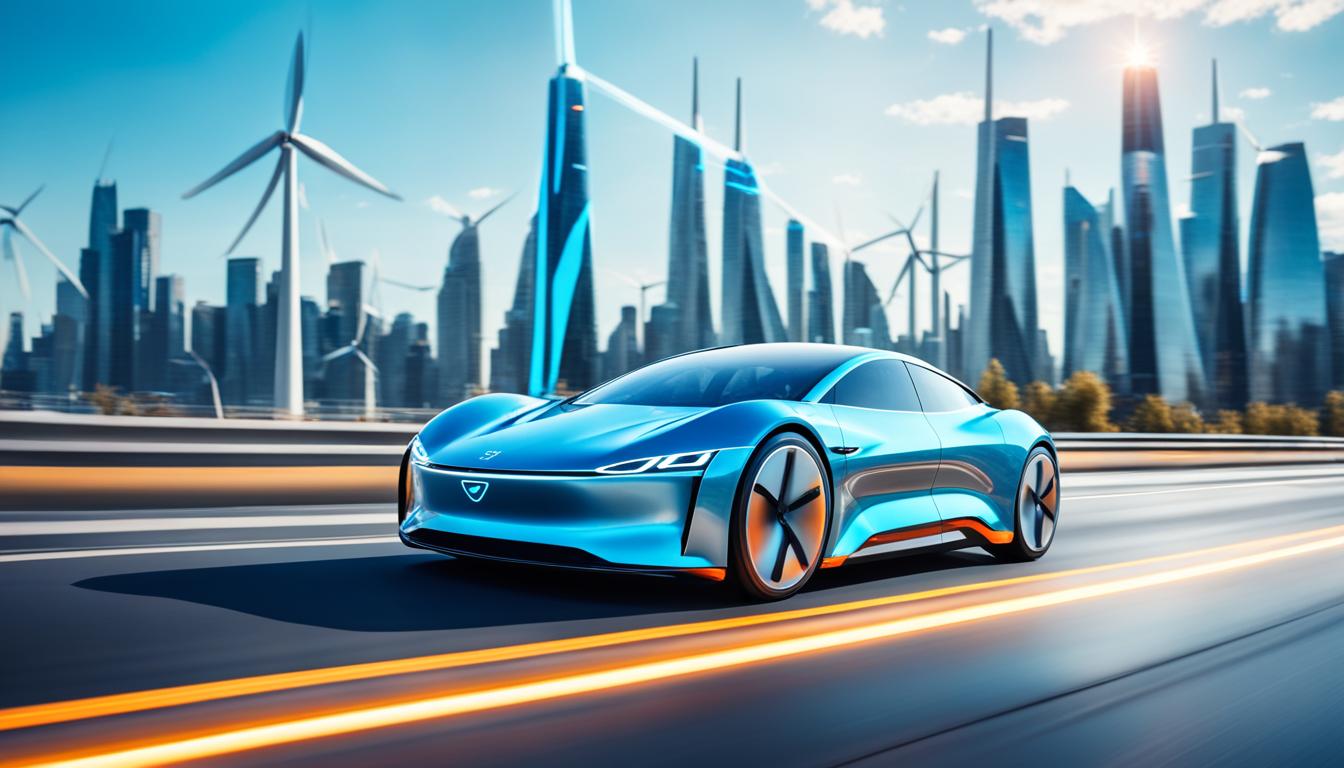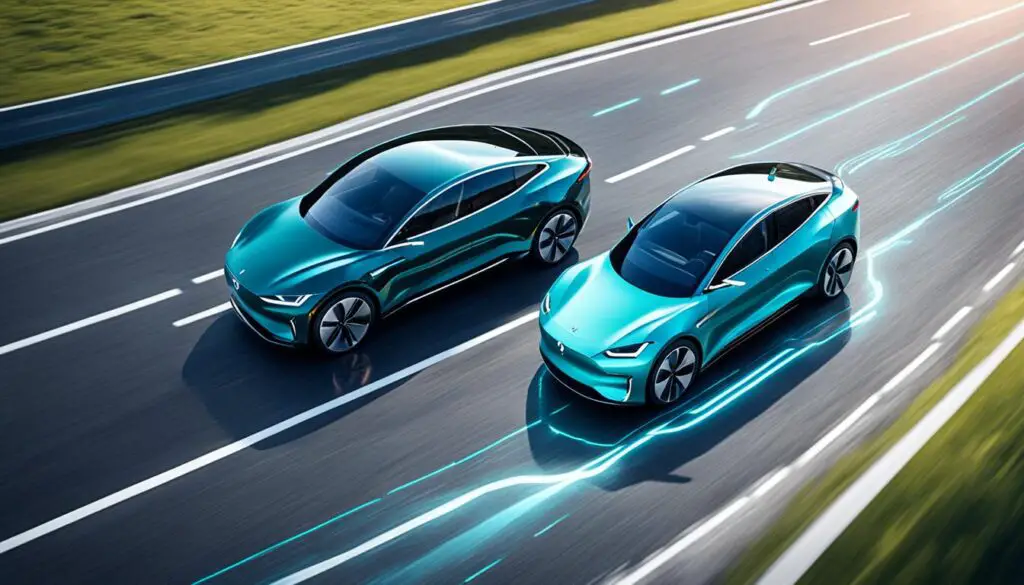
Revolutionizing the Road: The Latest in Electric Vehicle Tech
Electric vehicles (EVs) are transforming the transportation industry with their cutting-edge technology. From advancements in battery technology to the expansion of charging infrastructure, EVs are revolutionizing the way we move. As the demand for sustainable transportation solutions grows, electric vehicle tech continues to evolve, paving the way for a greener future.
- Advancements in electric vehicle technology are driving the growth of the EV market.
- Battery technology improvements have extended the range and performance of electric vehicles.
- Charging infrastructure is expanding to support the widespread adoption of EVs.
- Autonomous electric vehicles are becoming a reality, promising enhanced safety and convenience.
- The transition to electric vehicles contributes to reducing greenhouse gas emissions and improving air quality.
Advances in Electric Vehicle Technology
Electric vehicles have quickly gained momentum in recent years, with the market experiencing significant growth. This surge is largely thanks to the latest advancements in electric vehicle technology, which have revolutionized sustainable transportation.
One of the most notable advancements is in battery technology. Innovations in battery design and manufacturing have significantly increased the range and performance of electric vehicles. Drivers can now go farther on a single charge, making electric vehicles a viable option for everyday use.
Furthermore, the expansion of charging infrastructure has played a crucial role in supporting the widespread adoption of electric vehicles. With an increasing number of charging stations, drivers can conveniently recharge their vehicles, alleviating concerns about range anxiety.
Electric vehicle manufacturers have also prioritized improving charging speeds and convenience. The introduction of fast-charging technologies allows drivers to recharge their vehicles in a fraction of the time it once took. In addition, advancements in wireless charging technology are making it more convenient to recharge electric vehicles without the hassle of cables and plugs.
As technology continues to advance, the development of autonomous electric vehicles is becoming a reality. Companies like Tesla and Waymo are at the forefront of this revolution, working on autonomous driving systems that will transform the way we commute and travel.
What’s more, electric vehicles are becoming increasingly affordable and accessible to a wider range of consumers. As production scales up and economies of scale come into play, the cost of electric vehicle technology is steadily decreasing. This, combined with government incentives and subsidies, is making electric vehicles more attainable for the average consumer.
The adoption of electric vehicles has significant environmental benefits as well. By reducing reliance on fossil fuels, electric vehicles help to decrease greenhouse gas emissions and improve air quality. They are a key component of sustainable transportation and contribute to efforts to combat climate change.
To illustrate the growth and impact of electric vehicle technology, consider the following statistics:
| Year | Electric Vehicle Sales | Charging Stations |
|---|---|---|
| 2015 | 450,000 | 112,000 |
| 2020 | 3,200,000 | 690,000 |
| 2025 (projected) | 11,000,000 | 1,500,000 |
Note: The above data is for illustration purposes only and is not based on actual numbers.
From these figures, it’s clear to see the rapid growth and increasing popularity of electric vehicles and supporting charging infrastructure.
In conclusion, the advances in electric vehicle technology have transformed the transportation industry. Not only do electric vehicles offer improved range, charging convenience, and affordability, but they also contribute to a more sustainable and greener future.

The Future of Electric Vehicles
As we look ahead to the future of electric vehicles, it’s clear that exciting developments are on the horizon. One of the most significant trends that will shape the future of electric vehicles is the advancement in autonomous driving technology. With ongoing research and investment, we can expect to see self-driving electric vehicles becoming a common sight on our roads, offering enhanced safety and convenience.
Another crucial aspect of the future of electric vehicles is the expansion and improvement of charging infrastructure. Widespread and convenient access to charging stations will alleviate range anxiety and encourage more drivers to switch to electric vehicles. As technology improves, charging speeds will be faster, and innovative solutions such as wireless charging will become more prevalent.
Battery technology has been a driving force behind the success of electric vehicles, and it will continue to evolve in the future. Advancements in battery chemistry and manufacturing processes will enable increased range and reduced charging times, making electric vehicles even more practical and comparable to traditional vehicles. Furthermore, the integration of renewable energy sources into the charging infrastructure will contribute to the sustainability of electric mobility.
The adoption of electric vehicles plays a pivotal role in achieving sustainable mobility and reducing our reliance on fossil fuels. Collaborations between automobile manufacturers and technology companies will drive innovation in electric vehicle technology, resulting in more efficient and affordable electric models. Additionally, the trend of electric vehicle fleets and shared mobility services will grow, providing convenient and cost-effective transportation options while minimizing environmental impact.
FAQ
What is the Metaverse?
The Metaverse is a virtual reality space where users can interact with each other and computer-generated environments, blurring the boundaries between physical and digital realms.
How is the Metaverse relevant?
The concept of the Metaverse is gaining attention due to advancements in virtual and augmented reality technologies, offering immersive experiences in virtual worlds and potential applications in various industries.
What are the potential applications of the Metaverse?
The Metaverse has potential applications in industries such as education, entertainment, and communication, where it can enhance learning, enable immersive entertainment experiences, and facilitate virtual meetings and social interactions.
How does accessibility factor into the Metaverse?
Accessibility and inclusivity in the Metaverse are important considerations, especially for individuals with disabilities. Efforts should be made to ensure that everyone can participate and benefit from the virtual experiences.
What is the future of the Metaverse?
The future of the Metaverse is yet to be fully defined, but it could potentially be a fully simulated virtual world or an augmented reality overlay on the real world, integrating digital elements into our physical environment.
What is the role of blockchain in the Metaverse?
The use of blockchain technology in the Metaverse is being discussed and explored. Blockchain can potentially provide security, transparency, and ownership rights in the virtual space, enabling trusted interactions and transactions.
What are the concerns surrounding the Metaverse?
Concerns have been raised regarding the cost of access, misinformation, digital divide, and the potential impact on real-world relationships. These issues need to be addressed to ensure the responsible and inclusive development of the Metaverse.
